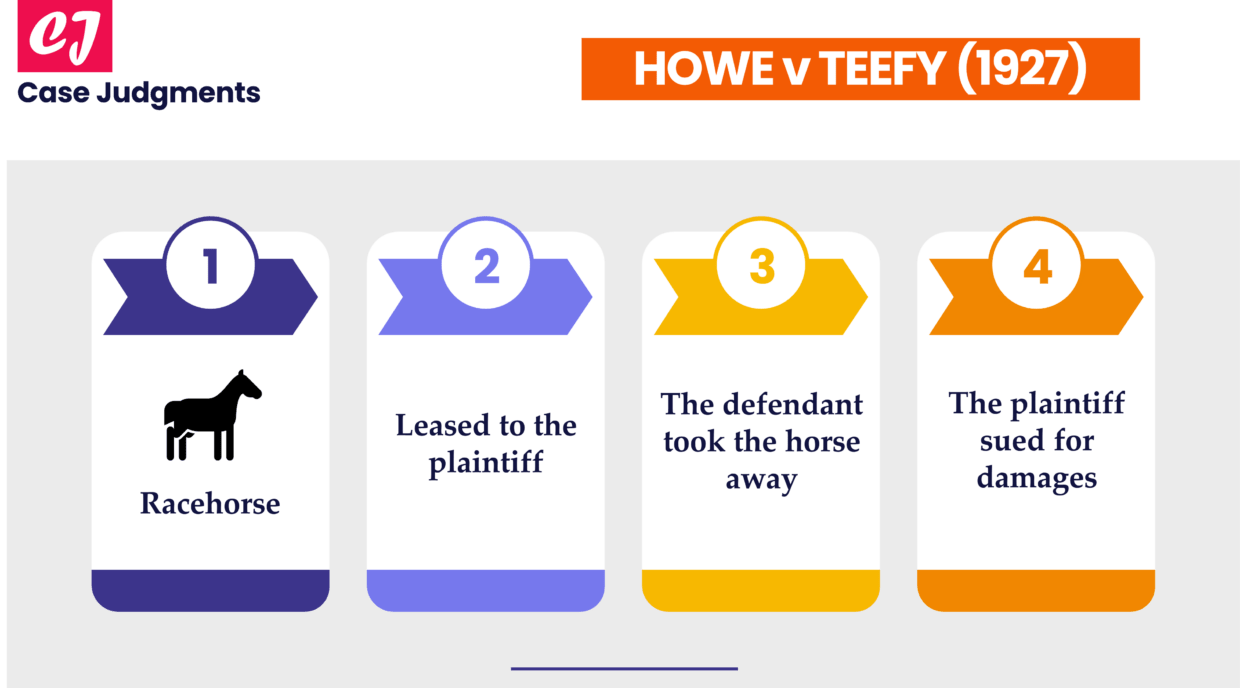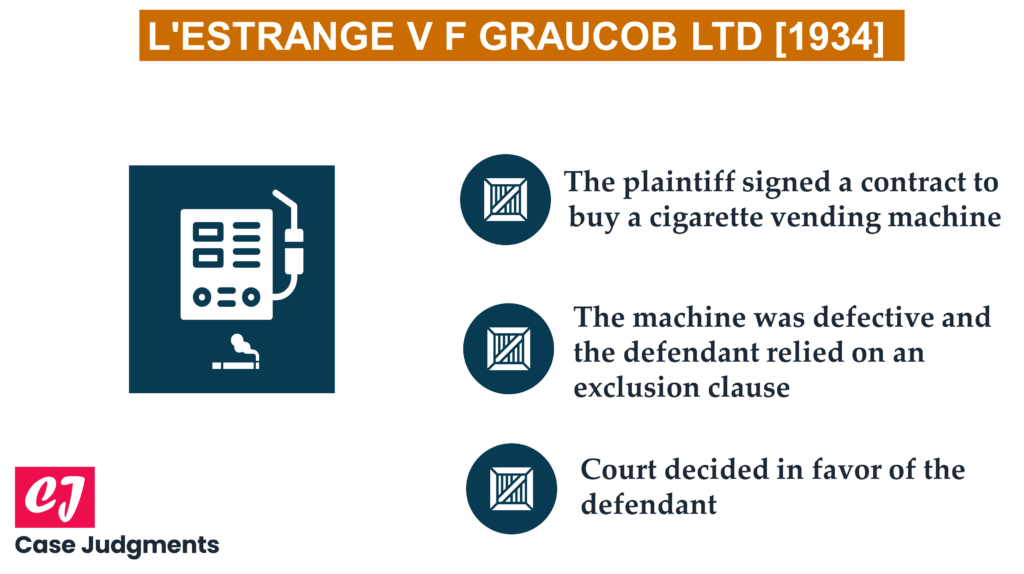
A Case Summary of Howe v Teefy (1927)
Howe v Teefy (1927) is an Australian contract law case that dealt with the issue of assessment of damages. Here, it was asked whether the Courts can be precluded from awarding damages if there are difficulties involved in their assessment.
The case involved a dispute over a leased racehorse. Given below are the case details:
| Case name & citation: | Howe v Teefy (1927) 27 SR (NSW) 301 |
| Jurisdiction: | New South Wales |
| Decided on: | 01 July 1927 |
| The bench of judges: | Street CJ, Gordon and Campbell JJ |
| Area of law: | Remedies for breach of contract; assessment of damages |
Facts of the case (Howe v Teefy)
The defendant leased a racehorse to the plaintiff, who was a trainer, for a period of three years from 13th September 1926. But in January 1927, he took the horse away from the plaintiff without any valid justification. Following this, the plaintiff filed a lawsuit against the defendant, claiming damages for breach of contract, conversion (wrongful interference with the plaintiff’s property), and detinue (wrongful withholding of the horse).
He claimed to recover damages in respect of the loss of profits he would have made from betting on the horse himself and the loss of profits he would have earned by supplying information about the horse to other persons for reward.
It may be noted that at the time of the lease agreement, the plaintiff had expressed his intention to have the horse “as a racing proposition.”
The jury decided in favor of the plaintiff and awarded him £250 in damages. The defendant was dissatisfied with the verdict and appealed against it on two grounds. Firstly, the defendant argued that the potential winnings from bets and stable commissions were too uncertain and speculative (or contingent) to be recovered as damages. Secondly, he claimed that there was no sufficient evidence upon which the jury could assess the prospective winnings accurately and that only nominal damages should have been awarded.
Issue raised
The issue, in this case, was whether the award of damages was justified or not. Given the difficulty in assessment, should the damages be limited to nominal ones?
Judgment of the Court in Howe v Teefy
The Court held that the plaintiff had indeed been deprived of his right to profit from the use of the racehorse and that this loss of right was capable of being calculated in monetary terms by the jury. Thus, the court dismissed the defendant’s appeal and affirmed the jury’s verdict of £250 in damages in favor of the plaintiff.
From this case, it can be deduced that difficulty in assessing damages does not prevent a court from awarding damages. Although the prospective winnings from bets and stable commissions may have been difficult to ascertain with certainty, still the court recognized that the plaintiff had been deprived of a chance or opportunity to make a profit from the use of the horse. Hence, based on common sense and reasonable estimations, damages were quantified in the best way possible.
List of references:
- https://nswlr.com.au/view-pdf/27-SR-NSW-301
- https://en-au.oxbridgenotes.com/revision_notes/law-university-of-sydney-contract-and-torts-ii/samples/damages-in-contract
- http://hancy.net/wp-content/uploads/2014/02/20100302paperLSValuationDamages.pdf
You might also like:
More from contract law:

